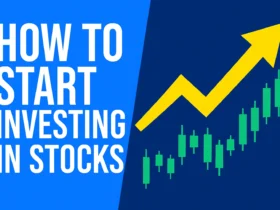Switching or choosing a new bank is a big decision—one that can significantly impact your financial health. Whether you’re opening your first bank account, changing banks for better features, or simply looking for a more reliable option, selecting the right bank involves more than just walking into the nearest branch.
With so many financial institutions offering various services, it’s easy to feel overwhelmed. But making the right choice can give you better interest rates, lower fees, more flexibility, and a more secure way to manage your money.
In this detailed guide, we’ll walk you through the most important factors to consider before opening a new bank account.
🏧 1. Understand Your Banking Needs
Before comparing banks, start by understanding why you need a bank account in the first place. People open accounts for different reasons:
- Daily transactions and bill payments
- Long-term savings
- Salary deposits
- Investment and loan purposes
- Building credit or business banking
Ask yourself:
- Do I need a basic savings account or a more advanced current account?
- Will I be making frequent online transactions or need access to physical branches?
- Do I need international transaction facilities?
👉 Once you understand your personal or business needs, you can narrow down the list of banks that best meet those requirements.
💰 2. Compare Account Types
Most banks offer multiple account types, such as:
- Savings Account – Ideal for storing money safely and earning modest interest.
- Current Account – Designed for businesses and individuals with frequent transactions.
- Fixed Deposit (FD) or Recurring Deposit (RD) – For those looking to earn higher interest on savings.
- Salary Account – For employees to receive their monthly pay directly.
- Student or Minor Account – For young individuals with minimal requirements.
When choosing an account, compare:
- Minimum balance requirements
- Interest rates
- Additional benefits or rewards
- ATM or debit card facilities
💡 Tip: If you don’t want to maintain a high balance, look for banks that offer zero-balance accounts with good digital features.
🏦 3. Check the Bank’s Reputation and Stability
Your bank is where you’ll store and grow your money, so trust is everything. Always choose a bank with:
- A strong reputation
- A history of reliability and stability
- Positive customer reviews and ratings
You can research the bank’s background, look for government backing, and check for financial security ratings.
👉 A well-established bank is less likely to face financial troubles, giving you more peace of mind.
📲 4. Digital Banking and Mobile App Experience
In today’s fast-paced world, digital banking is a must. A user-friendly, secure, and feature-rich mobile banking app can make your life easier.
Features to look for:
- Real-time account balance and transaction tracking
- Easy fund transfers and bill payments
- UPI, NEFT, RTGS, and IMPS support
- Card control and blocking features
- Secure login (biometric or PIN)
A good app should offer a smooth and secure experience without frequent downtime. If you prefer banking online rather than visiting branches, prioritize banks with strong digital infrastructure.
💳 5. Fees and Charges
Many people overlook bank fees when opening a new account. But hidden charges can eat into your savings over time.
Here are common fees to check:
- Minimum balance charges
- ATM withdrawal fees after free transactions
- Fund transfer charges
- Cheque book or debit card fees
- Foreign transaction fees
- Loan or overdraft charges
💡 Pro Tip: Some banks offer fee waivers or cashback on digital transactions. Compare different banks to find the most cost-effective option.
🏦 6. Branch and ATM Accessibility
Even with digital banking, having easy access to physical branches and ATMs can be a huge advantage—especially in emergencies.
Ask yourself:
- Does the bank have branches and ATMs near my home or workplace?
- Are ATMs available in multiple cities or states?
- Is it part of a larger ATM network that offers free withdrawals?
If you travel frequently, choose a bank with a widespread branch network to avoid unnecessary charges and delays.
📊 7. Interest Rates and Rewards
Interest rates may not seem like a big deal at first, but over time, they can make a significant difference in your savings.
- Savings account interest rates vary from bank to bank.
- Fixed deposits or recurring deposits can offer higher returns.
- Some banks offer cashback rewards, loyalty points, or discounts on partnered platforms.
👉 Don’t just look for high interest rates; also check for consistency and withdrawal conditions.
🔒 8. Safety and Security Features
Your bank must keep your money and personal data safe. Security should never be compromised.
Look for features like:
- Two-factor authentication (2FA)
- Biometric or secure PIN login
- Real-time fraud alerts
- End-to-end encryption
- Quick card blocking options
Additionally, verify if the bank is insured under national financial safety programs to ensure your deposits are protected in case of any unexpected issues.
🤝 9. Customer Service and Support
Even the best banks can have issues—but how they handle those issues matters the most. Good customer service can save you time, money, and stress.
Check:
- Response time through call, email, or chat support
- Availability of 24/7 customer care
- Feedback from existing customers
- Complaint resolution time
💡 If the bank offers multilingual or regional language support, that’s an added advantage.
🌍 10. International Banking Capabilities (If Needed)
If you’re a frequent traveler, freelancer, or business owner with international clients, global banking features are important.
Look for:
- Foreign currency accounts or international debit cards
- Low foreign transaction fees
- Currency exchange support
- Tie-ups with global banks
Having these features will make your international transactions faster, cheaper, and hassle-free.
🧾 11. Additional Services and Benefits
Modern banks offer more than just savings accounts. Some provide value-added services like:
- Credit cards
- Loans and overdraft facilities
- Insurance and investment options
- Financial advisory services
- Wealth management tools
Choosing a bank that can grow with your financial needs is smarter than switching banks later.
📉 12. Transparency and Terms & Conditions
Many banks lure customers with exciting offers and hidden conditions. Before signing up, read the fine print carefully.
Pay attention to:
- Terms on promotional offers
- Account closure charges
- Conditions for maintaining minimum balance
- Interest calculation methods
A transparent bank clearly explains its policies without hidden surprises.
🪙 13. Government vs. Private Banks
In many countries, you have a choice between government-owned and private banks.
| Feature | Government Banks | Private Banks |
|---|---|---|
| Security & Stability | Very High | High (Depends on bank reputation) |
| Interest Rates | Usually standard | May offer better rates |
| Customer Service | Slower response time | Faster and more personalized |
| Technology & Digital Features | Moderate | Advanced |
| Fee Structure | Usually lower | Sometimes higher |
👉 Choose based on your comfort level, security preference, and service expectations.
🧑💼 14. Reviews and Recommendations
Don’t underestimate word of mouth. Ask friends, family, or colleagues about their experience with different banks.
Also, check:
- Online reviews and ratings
- Forums and financial communities
- Social media feedback
While no bank is perfect, consistent positive feedback is a good sign.
🏁 15. Ease of Account Opening and Closing
Opening a new account should be quick and hassle-free. Check if the bank offers:
- Online account opening
- Paperless KYC options
- Instant virtual debit card issuance
- Fast account closure if required
Some banks make account opening complicated with unnecessary documentation—avoid those if you prefer convenience.
📅 16. Flexibility to Upgrade or Switch Accounts
Your financial needs can change over time. That’s why it’s wise to choose a bank that allows you to upgrade your account easily—say, from a basic savings account to a premium account or from personal banking to business banking.
👉 This flexibility can save you the trouble of changing banks again in the future.
🪪 17. Look for Special Offers or Perks
Many banks offer welcome bonuses, cashback offers, or exclusive deals to attract new customers.
Examples include:
- Free debit/credit cards for the first year
- Cashback on bill payments or shopping
- Bonus interest for maintaining a minimum balance
But remember: don’t choose a bank solely for the offer. Always check the long-term value.
📊 18. Evaluate the Overall User Experience
Ultimately, your experience matters most. You should feel confident and comfortable managing your money with the bank.
Ask yourself:
- Is the bank’s app easy to use?
- Are transactions fast and secure?
- Is customer support reliable?
- Does the bank give me value for my money?
💡 Expert Tips for Choosing the Right Bank
- ✅ Start with your priorities — Know what matters most to you (fees, interest rates, digital banking, etc.).
- 🔍 Compare multiple banks — Don’t rush; research at least 3–5 banks before deciding.
- 📱 Test the digital experience — Download their app and check features before opening an account.
- 🧾 Read reviews — Real experiences can reveal a lot about how a bank works.
- 💬 Talk to a representative — If possible, visit a branch or contact support for clarity.
🏆 Best Banks Usually Offer:
- Transparent fee structure
- Reliable and secure services
- User-friendly digital platforms
- Competitive interest rates
- Excellent customer support
- Easy access to ATMs and branches
🏁 Final Thoughts
Choosing a new bank isn’t something you do every day, so it’s important to make an informed decision. The right bank can simplify your financial life, save you money, and offer the flexibility you need.
Whether you’re opening your first account or switching to a better one, carefully compare features, fees, interest rates, digital experience, and security.
Remember, your bank should work for you—not the other way around. Take your time, evaluate your options, and choose a bank that aligns with your financial goals.












Leave a Reply